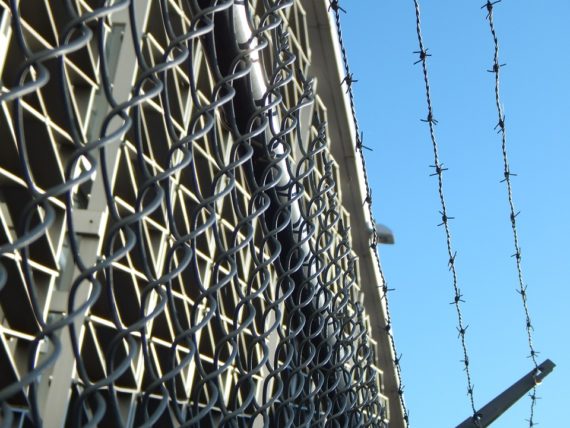
Courtesy Pixabay
(8-14-20) Partner for Mental Health, an affiliate of Mental Health America, has developed a 7 step program to reduce interactions between Americans with mental illnesses and the police and to reduce inappropriate incarceration. The group is urging city officials in Charlottesville, Virginia, to accept what it calls “a holistic reform” of the local criminal justice system.
These seven steps should be adopted by other communities.
“Policing does not exist as an independent entity in any community and complex health and social issues, such as mental illness, are often woven into the circumstances of a police response,” Anna Mendez, Partner for Mental Health Executive Director, wrote in an email. “In these cases, the police force’s ability to respond appropriately to members of the community with mental illness is directly related to the community’s commitment to support its members living with mental health challenges.” Mendez added that it was “not reasonable to expect a police officer to respond appropriately to a person with mental illness” when there are no community support services.
Amen!
Here are the seven steps that Partner for Mental Health asking Charlottesville City officials to adopt:
- Workgroup. Establish a workgroup, as proposed by Myra Anderson, leader of Brave Souls on Fire, charged with “Reimagining Mental Health Crises Without Police Intervention” to guide the creation and implementation of a continuum of interventions to prevent the criminalization of mental illness in Charlottesville.
- Non-police Urgent Response System. Establish a non-police urgent response system to resolve calls for service that are behavioral health related and non-violent with the express goal of helping all parties involved avoid both arrest and hospitalization.
3. Mobile Crisis Unit. For the few instances where involuntary hospitalization might be necessary, create a mobile crisis unit so individuals in crisis can be evaluated in the privacy of their home, rather than being transported to the evaluator, often in handcuffs in the back of a police car.
- No-Barrier Respite Center. Create a no-barrier respite center staffed 24 hours a day, seven days per week so when a police officer encounters a community member in distress, but not in need of hospital-level care, there is a place the officer can take the person for support and assistance.
- Improved System of Alcohol Treatment Options. Charlottesville has one of the highest rates of alcohol misuse of any location in Virginia, even excluding UVA students. Data shows that alcohol misuse is the most common cause of police response in Charlottesville. Providing immediate access to a continuum of trauma-informed and evidence-based alcohol treatment options to all residents who desire it—at no cost regardless insurance status—could be one of most effective ways to reduce the criminalization of addiction.
- Refrain from Charging People in a Mental Health Crisis with Assault on a Law Enforcement Officer. Train officers to use the utmost restraint in such situations and prohibit the charging of people in a mental health crisis with assault on a law enforcement officer when their behavior is due to, or a symptom of their mental health emergency.
- Expand the Scope and Capacity of the Charlottesville-Albemarle Mental Health Therapeutic Docket. Change the structure from a post-plea docket to a pre-adjudication intervention; allow for the adjudication of felony charges by the docket; fund the docket so it has the capacity to serve all eligible Charlottesville residents who desire to participate; and require that all people incarcerated at Albemarle-Charlottesville Regional Jail, who screen positive on a mental health screening, be fully informed about the Therapeutic Docket as an option.
“Data from the Institute of Law, Psychiatry, and Public Policy shows that people with mental illness are disproportionately arrested,” Mendez wrote, “and research led by the Thomas Jefferson Area Criminal Justice Planner shows they are treated more harshly throughout the criminal justice process than people without mental health challenges. Additionally, Charlottesville’s recent Disproportionate Minority Contact Study confirmed racial disproportionality across the local criminal justice system. Taken together, this means it is likely that Black and Brown members of our community living with mental illness are at highest risk for criminalization of their mental health challenges. Our proposed action plan provides guidance to City leaders on how to change this.”



